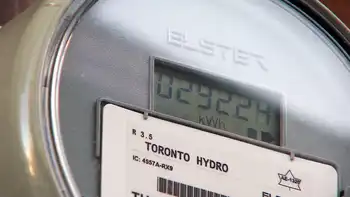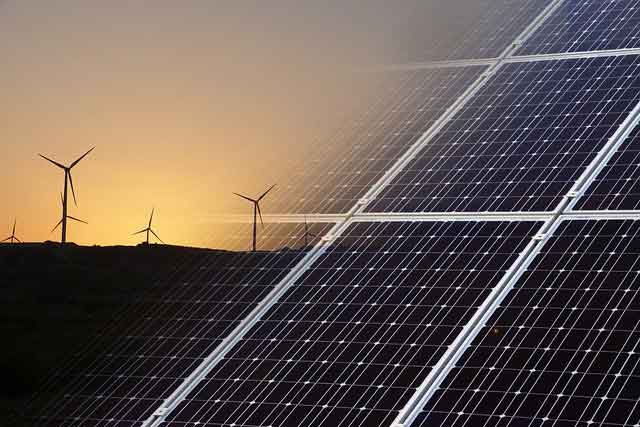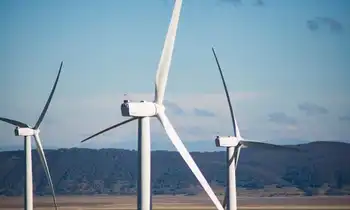Switch-On Project Electric Trucks accelerate California freight decarbonization, deploying Volvo VNR Electric rigs with high-capacity charging infrastructure, zero-emissions operations, and connected safety features to cut greenhouse gases and improve urban air quality.
Key Points
A California program deploying Volvo VNR Electric trucks and charging to decarbonize freight and improve air quality.
✅ 70 Volvo VNR Electric trucks for regional logistics
✅ Strategic high-capacity charging for heavy-duty fleets
✅ Lower TCO via fuel savings and reduced maintenance
In a significant step toward sustainable transportation, the Switch-On project is bringing 70 Volvo VNR Electric trucks to California. This initiative aims to bolster the state's efforts to reduce emissions and transition to greener logistics solutions. The arrival of these electric vehicles marks an important milestone in California's commitment to combating climate change and improving air quality.
The Switch-On Project: Overview and Goals
The Switch-On project is a collaborative effort designed to enhance electric truck adoption in California. It focuses on developing the necessary infrastructure and technology to support electric vehicles (EVs) in the freight and logistics sectors, building on recent nonprofit investments at California ports. The project not only seeks to increase the availability of electric trucks but also aims to demonstrate their effectiveness in real-world applications.
California has set ambitious goals for reducing greenhouse gas emissions, particularly from the transportation sector, which is one of the largest contributors to air pollution. By introducing electric trucks into freight operations, the state aims to significantly cut emissions, improve public health, and pave the way for a more sustainable future.
The Volvo VNR Electric Trucks
The Volvo VNR Electric trucks are specifically designed for regional distribution and urban transport, aligning with Volvo's broader electric lineup as the company expands offerings, making them ideal for the needs of California’s freight industry. With a range of approximately 250 miles on a single charge, these trucks can efficiently handle most regional routes. Equipped with advanced technology, including regenerative braking and connectivity features, the VNR Electric models enhance operational efficiency and safety.
These trucks not only provide a cleaner alternative to traditional diesel vehicles but also promise lower operational costs over time. With reduced fuel expenses and lower maintenance needs, and emerging vehicle-to-grid pilots that can create new value streams, businesses can benefit from significant savings while contributing to environmental sustainability.
Infrastructure Development
A crucial aspect of the Switch-On project is the development of charging infrastructure to support the new fleet of electric trucks. The project partners are working on installing high-capacity charging stations strategically located throughout California while addressing utility planning challenges that large fleets will pose to the power system. This infrastructure is essential to ensure that electric trucks can be charged efficiently, minimizing downtime and maximizing productivity.
The charging stations are designed to accommodate the specific needs of heavy-duty vehicles, and corridor models like BC's Electric Highway provide useful precedents for network design, allowing for rapid charging that aligns with operational schedules. This development not only supports the new fleet but also encourages other logistics companies to consider electric trucks as a viable option for their operations.
Benefits to California
The introduction of 70 Volvo VNR Electric trucks will have several positive impacts on California. Firstly, it will significantly reduce greenhouse gas emissions from the freight sector, contributing to the state’s ambitious climate goals even as grid expansion will be needed to support widespread electrification across sectors. The transition to electric trucks is expected to improve air quality, particularly in urban areas that struggle with high pollution levels.
Moreover, the project serves as a model for other regions considering similar initiatives. By showcasing the practicality and benefits of electric trucks, California hopes to inspire widespread adoption across the nation. As the market for electric vehicles continues to grow, this project can play a pivotal role in accelerating the transition to sustainable transportation solutions.
Industry and Community Reactions
The arrival of the Volvo VNR Electric trucks has been met with enthusiasm from both industry stakeholders and community members. Logistics companies are excited about the opportunity to reduce their carbon footprints and operational costs. Meanwhile, environmental advocates applaud the project as a crucial step toward cleaner air and healthier communities.
California’s commitment to sustainable transportation has positioned it as a leader in the shift to electric vehicles amid an ongoing biofuels vs. EVs debate over the best path forward, setting an example for other states and countries.
Conclusion
The Switch-On project represents a major advancement in California's efforts to transition to electric transportation. With the deployment of 70 Volvo VNR Electric trucks, the state is not only taking a significant step toward reducing emissions but also demonstrating the feasibility of electric logistics solutions.
As infrastructure develops and more electric trucks hit the roads, California is paving the way for a greener, more sustainable future in transportation. The success of this project could have far-reaching implications, influencing policies and practices in the broader freight industry and beyond.
Related News












